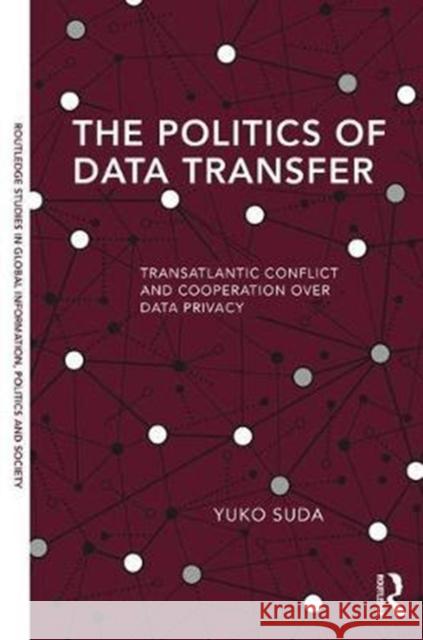The Politics of Data Transfer: Transatlantic Conflict and Cooperation Over Data Privacy » książka
The Politics of Data Transfer: Transatlantic Conflict and Cooperation Over Data Privacy
ISBN-13: 9781138696280 / Angielski / Twarda / 2017 / 142 str.
The Politics of Data Transfer: Transatlantic Conflict and Cooperation Over Data Privacy
ISBN-13: 9781138696280 / Angielski / Twarda / 2017 / 142 str.
(netto: 721,53 VAT: 5%)
Najniższa cena z 30 dni: 654,86
ok. 16-18 dni roboczych.
Darmowa dostawa!
Transatlantic conflicts over data have been studied from several perspectives. The EU-U.S. debate that led to the Safe Harbor Arrangement has typically been seen as an instance of a regulatory conflict or competition between two powers with different approaches to data protection or privacy. The Passenger Name Record (PNR) dispute and the Society for Worldwide Interbank Financial Transactions (SWIFT) affair, on the other hand, have mostly been understood as cases of struggle between counterterrorism and civil liberties; according to a prevailing view, they are examples of 'hegemonic' behaviors of the United States that characterize the U.S.-led global war against terrorism. In this book, Yuko Suda uses the Safe Harbor debate, the PNR dispute, and the SWIFT affair to examine transatlantic politics involving the transfer of personal data from the European Union (EU) to the United States. She argues that the Safe Harbor, PNR, and SWIFT agreements were made to manage or mitigate the potentially negative effects that may arise from the beyond-the-border reach of EU data privacy rules or U.S. counterterrorism regulation. All of the cases examined began with extraterritorial assertion of domestic/national regulation, followed by negotiations to manage the conflict, and resulted in arrangements that intended to mitigate the adverse effects of extraterritorial regulation. A close examination of the Safe Harbor, PNR, and SWIFT cases would reveal how beyond-the-border reach of one jurisdiction's regulation affect another jurisdiction's regulatory policy and what responses the affected jurisdiction possibly makes to such external impacts. The Politics of Data Transfer adds another dimension to the study of transatlantic data conflicts by assuming that the cases exemplify not only the politics of data privacy but also the politics of extraterritorial regulation. A welcomed and timely collection uncovering the prospect of the politics of data privacy in the digitalized and interconnected world.











